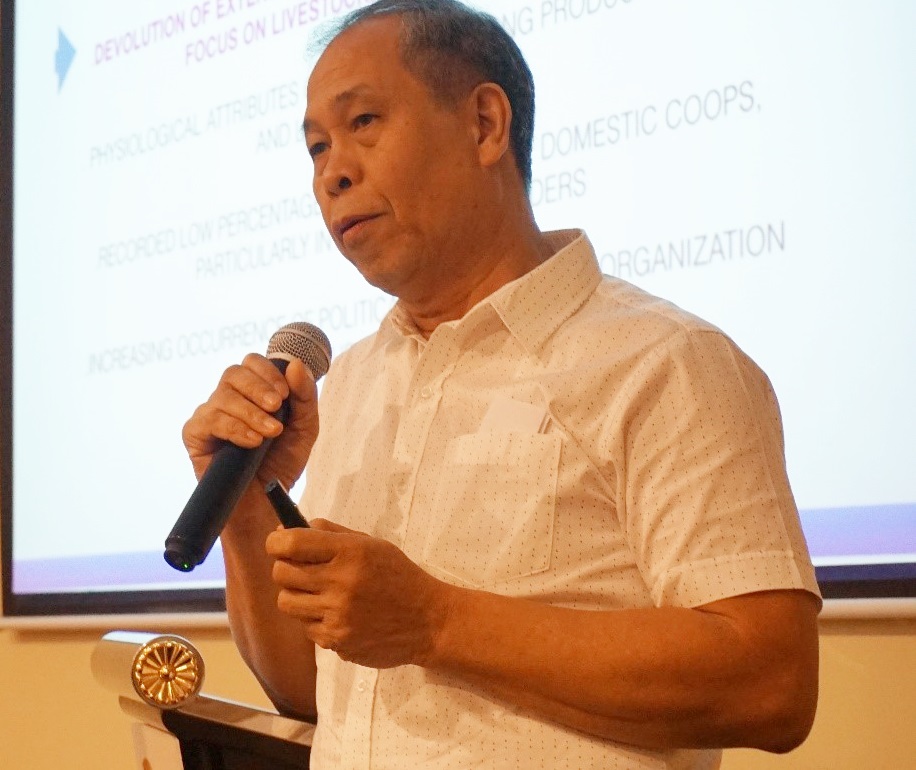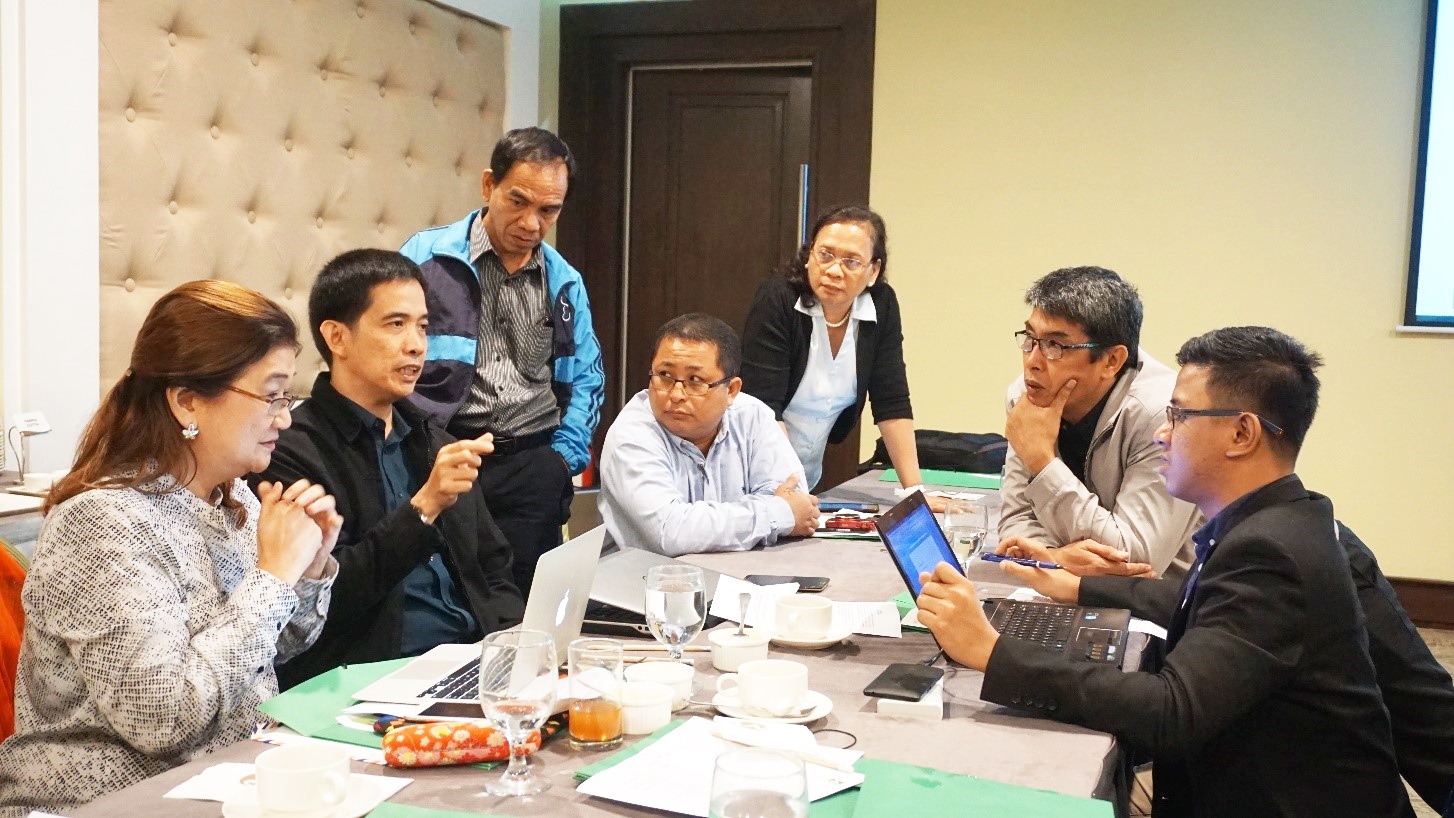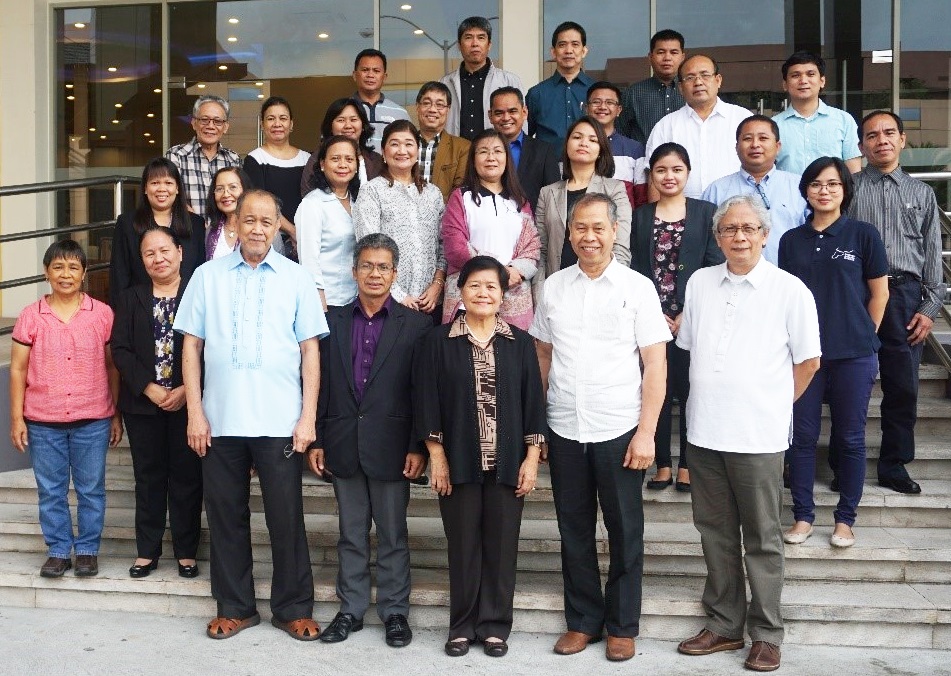In his message, Dr. Arnel N. del Barrio, PCC’s Acting Executive Director, reminded the group about Secretary Emmanuel “Manny” Piñol’s earlier pronouncement that the basic mandate of the Department of Agriculture (DA) is to produce available and affordable food for all Filipinos. Along this line, Dr. del Barrio added that Sec. Piñol gave instructions for PCC to develop and strengthen the Philippine carabeef industry, and reducing the importation of meat from India, which is reportedly one of the countries with high incidence of foot and mouth disease (FMD). Furthermore, the PCC and the National Dairy Authority (NDA) were given the task to support the national milk feeding program of the government for Grades 1-4 in ten priority (poorest) provinces or areas with high rate of malnutrition. Against the backdrop of a declining carabao milk and meat production inventory and the need to increase local milk supply without resorting to importation, Dr. del Barrio called on the PCC Center Directors and staff to align its activities towards making food available and affordable, increasing the income of dairy farmers and farm workers, and increasing the resiliency of the livestock sector to climate change. In parting, Dr. del Barrio recognized the need to discuss how PCC could address the issues and concerns brought about by Senate Bill No. 142, otherwise known as the “Dairy Development Act of 2016”, introduced by Senator Cynthia A. Villar, and currently pending in the Philippine Senate Committee on Agriculture and Food. Senate Bill 142 primarily seeks to “provide greater focus on the accelerated development of the dairy industry and the increase production of dairy animals in the Philippines by merging the PCC with NDA into the Philippine Dairy Development Agency (PDDA).”

On the other hand, Dr. Libertado C. Cruz, former Executive Director of PCC, gave a thorough retrospective on the strengths and weakness of PCC as an institution, as well as the opportunities for and threats to PCC based on his experiences as an administrator, researcher, consultant, and scientist and now managing a dairy buffalo multiplier farm in Nueva Ecija. Dr. Cruz gave the following take home messages for PCC: (1) the need to create the critical production base if PCC is aiming for carabao-based enterprise development considering the slow rate of reproduction and the time needed to genetically upgrade the existing population to achieve acceptable level of productivity; (2) the need for a huge government support to entice private partners to invest in herd-build up and enterprise development; (3) to seize the opportunity to take the lead in increasing its internal and partners’ (essentially the LGUs) capacities in developing human resources attuned to the requirements of the enterprise; (4) that profitability is the language of the enterprise, thus, the opportunity offered by the niche market for buffalo derived products both in research and in extension must be harnessed; (5) the higher profit margin for value added or processed dairy products such that linking the raw milk production and dairy processing subsectors and finding a suitable business partnership/arrangement profit-wise is essential; (6) for semi-commercial and commercial producers to find means to reduce the cost of production such that integrating processing/value adding is the way to generate profit.
During the workshop proper, Dr. Alexander G. Flor, Technical Coordinator and Dean, Faculty of Information and Communication Studies, UP Open University, divided the participants into three groups. One group was assigned to identify the strengths and weaknesses of PCC; another group analyzed the opportunities for and threats to PCC and the third group developed PCC’s institutional responses in terms of policies and programs. There were three issues identified prior to the workshop: (1) Impact of ASEAN Integration on Carabao-based Enterprises, (2) Development of an e-Agriculture Strategy for the Philippines, and (3) The Livestock Industry and Climate Change: The State of Play.

Mr. Jose C. Reaño, former DA Undersecretary for Operations (Livestock) and Managing Director of Broadchem Philippines Biopharma Corporation and Dr. Flordeliza A. Lantican, Value Chain Analysis (VCA) Specialist served as resource persons and discussants. Dr. Lantican discussed the impact of the ASEAN Economic Community (AEC) on the carabao-based enterprises. According to Dr. Lantican, with the establishment of AEC, it is expected that there will be an increase in investments in carabao-based enterprise considering the influx of investors from ASEAN member-countries (e.g., Thailand, Vietnam, and Singapore) through joint venture agreements, contract growing and/or marketing. She added that there will be a big market demand for quality and safe carabao-based milk and meat products considering the fact that there are more than 600 million people in the ASEAN region. The growing number of foreign and local tourists will also support the establishment of agri-tourism that will highlight best practices in carabao farming, dairying, and feedlot fattening. Meanwhile, Mr. Reaño zeroed in on the available resources and genetic improvement program of PCC, which could be harnessed and strengthened to address climate change and at the same time protect the environment.
The results of the two workshop sessions will serve as inputs to the two SWOT-based policy papers to be published by SEARCA and PCC. The workshop team from SEARCA led by Dr. Flor also included Dr. Serafin D. Talisayon, KM Team Leader and Policy and Planning Specialist, Dr. Maria Celeste H. Cadiz, KM and Capacity Building Specialist, Dr. Lope B. Santos III, OIC and Program Specialist, Project Development and Technical Services (PDTS). Dr. Mariliza V. Ticsay, Unit Head, Knowledge Resources Unit-KMD, joined the team to discuss with the head and members of PCC's KM team, separately, the production of knowledge products for the forthcoming PCC National Carabao-based Enterprise Development (CBED) Forum to be held on 14-18 November 2016 at PCC National Headquarters, Muñoz, Nueva Ecija. Ms. Rosario B. Bantayan, Ms. Nancy M. Landicho-de Leon, Program Specialists, KMD and PDTS, respectively, and Ms. Sarah Grace L. Quiñones, Project Coordinator, PDTS provided technical and administrative support in the conduct of the event.
